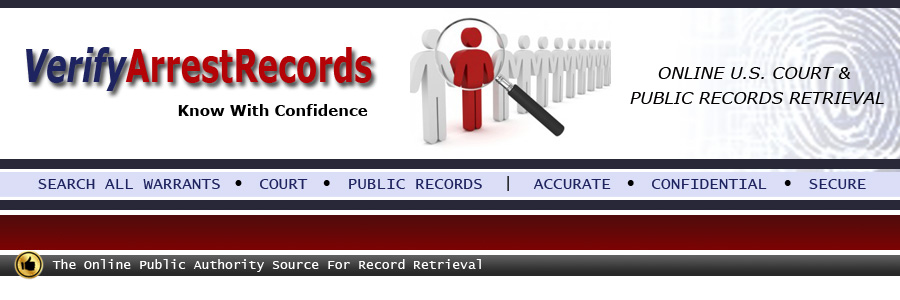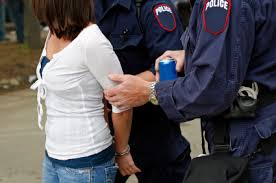

Minors and The Legal System
Juvenile Rights
The same laws that pertain to adults basically apply to juveniles, with a few exceptions. This is due in part to protect their safety and to help keep them free from harm. In regards to the criminal system, juveniles aren't allowed to be incarcerated with adult criminals and are kept separate from engaging with them to protect their best interests. The age at which an individual is considered an adult varies by state since each state is allowed to define that age. In some states an individual is considered an adult at 18, while in other states the age is only 16. In all states, however, anyone under the age of 21 is prohibited from buying or possessing alcohol .
Juveniles & the Court System
Many factors are taken into consideration when a juvenile enters the court system to determine appropriate sentencing and/or probation periods. The maturity of the individual, the seriousness of the offense, and any prior records are carefully regarded. Often counseling, youth camps, a specific program, counseling or community service will be decided upon instead of jail time because juveniles often benefit from these types of corrective measures.
Can A Minor Waive His/Her Rights?
The answer to that is not clear cut since each state decides for themselves in the United States. In states where rights can be waived by a minor, the rights have to be waved before the individual can give a statement and must be done in the presence of a judge and the juvenile's parent or guardian. Again, states differ on the age at which an individual is a minor which in turn effects the age at which someone is able to waive their rights. Some states may consider this action before the minor is legally an adult. Others states won't consider it until the person has legally reached the age of adulthood specified by the state.
Statements & Questioning
Federal and state statutes determine how, when and where a juvenile's statement can be obtained for use in the court system. In most circumstances a juvenile has the right to consult with his/her parent or guardian before being questioned. Before a juvenile signs any statement, a judge must be absolutely sure that the individual understands the nature and consequences of his/her action.
Removing a Record
If a minor has committed a crime its filed as a juvenile record with the courts. In many cases the judge will allow the record to be expunged upon the individual turning 18 (or the legal age of adulthood in their state). This allows a minor to start their adult life with a clean slate. However, if the offense was of a criminal nature, then the record might remain on file. In this case it's recommended to obtain legal counsel to get the record removed.
Juvenile Rights
The same laws that pertain to adults basically apply to juveniles, with a few exceptions. This is due in part to protect their safety and to help keep them free from harm. In regards to the criminal system, juveniles aren't allowed to be incarcerated with adult criminals and are kept separate from engaging with them to protect their best interests. The age at which an individual is considered an adult varies by state since each state is allowed to define that age. In some states an individual is considered an adult at 18, while in other states the age is only 16. In all states, however, anyone under the age of 21 is prohibited from buying or possessing alcohol .
Juveniles & the Court System
Many factors are taken into consideration when a juvenile enters the court system to determine appropriate sentencing and/or probation periods. The maturity of the individual, the seriousness of the offense, and any prior records are carefully regarded. Often counseling, youth camps, a specific program, counseling or community service will be decided upon instead of jail time because juveniles often benefit from these types of corrective measures.
Can A Minor Waive His/Her Rights?
The answer to that is not clear cut since each state decides for themselves in the United States. In states where rights can be waived by a minor, the rights have to be waved before the individual can give a statement and must be done in the presence of a judge and the juvenile's parent or guardian. Again, states differ on the age at which an individual is a minor which in turn effects the age at which someone is able to waive their rights. Some states may consider this action before the minor is legally an adult. Others states won't consider it until the person has legally reached the age of adulthood specified by the state.
Statements & Questioning
Federal and state statutes determine how, when and where a juvenile's statement can be obtained for use in the court system. In most circumstances a juvenile has the right to consult with his/her parent or guardian before being questioned. Before a juvenile signs any statement, a judge must be absolutely sure that the individual understands the nature and consequences of his/her action.
Removing a Record
If a minor has committed a crime its filed as a juvenile record with the courts. In many cases the judge will allow the record to be expunged upon the individual turning 18 (or the legal age of adulthood in their state). This allows a minor to start their adult life with a clean slate. However, if the offense was of a criminal nature, then the record might remain on file. In this case it's recommended to obtain legal counsel to get the record removed.

The Miaranda Rights

Upon arrest an officer is required by law to immediately notify the minor’s parent or guardian of the incident.
---------------------------------------------------------------
A minor that has been arrested is allowed two phone calls - one to a parent or guardian and one to an attorney.
---------------------------------------------------------------
If the minor is detained, the officer must take the minor before a probation officer within 24 hours of being arrested.
---------------------------------------------------------------
In the United states, a minor cannot be incarcerated with adults. He/she must be detained in a juvenile prison.
---------------------------------------------------------------
Only probable cause is needed to take a minor into custody. A police officer does not have to witness a minor committing a crime to make an arrest.
---------------------------------------------------------------
As with adults, minors have the right to remain silent and the right against self incrimination. Any statements the minor makes may be used against them.
----------------------------------------------------------------
All minors have the right to legal representation. If the minor or the parents can't afford a lawyer, one will be appointed for them.
----------------------------------------------------------------
A minor has the right to have both his attorney and his parents present at every stage of their trial.
---------------------------------------------------------------
A minor that has been arrested is allowed two phone calls - one to a parent or guardian and one to an attorney.
---------------------------------------------------------------
If the minor is detained, the officer must take the minor before a probation officer within 24 hours of being arrested.
---------------------------------------------------------------
In the United states, a minor cannot be incarcerated with adults. He/she must be detained in a juvenile prison.
---------------------------------------------------------------
Only probable cause is needed to take a minor into custody. A police officer does not have to witness a minor committing a crime to make an arrest.
---------------------------------------------------------------
As with adults, minors have the right to remain silent and the right against self incrimination. Any statements the minor makes may be used against them.
----------------------------------------------------------------
All minors have the right to legal representation. If the minor or the parents can't afford a lawyer, one will be appointed for them.
----------------------------------------------------------------
A minor has the right to have both his attorney and his parents present at every stage of their trial.
Facts Regarding Minors

ęCopyright VerifyArrestRecords.org_LLC. All Rights Reserved. VerifyArrestRecords.org is not affiliated in anyway with any Federal or State government agencies. All trademarks on this website, whether registered or not, are the property of their respective owners. Please do your own due diligence to determine if the content is right for your individual purposes. The publisher, vendors and advertisers of this site are not liable for any damages or losses associated with its content or the information posted by the publisher, advertisers and vendors. If you have any questions related to this website, please send an email to support@verifyrecords.com and we will reply within 24 hours. Thank you for visiting www.verifyarrestrecords.org.
DISCLAIMER: This report is not legal advice. You need to do your own due diligence to determine if the content is right for your Individual purposes. The publisher of this report is not liable for any damages or losses associated with the content in this report.
DISCLAIMER: This report is not legal advice. You need to do your own due diligence to determine if the content is right for your Individual purposes. The publisher of this report is not liable for any damages or losses associated with the content in this report.